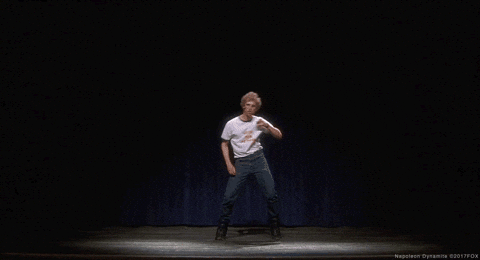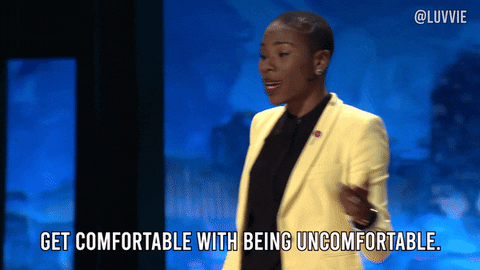Hey Fam,
During a high-stakes product launch, Arjun, a leading AI strategist, was faced with a decision that could make or break the project.
The stakes were massive—millions in potential revenue, clients ready to jump ship if it failed. But even with years of expertise, this challenge was uncharted territory.
Experts don’t have all the answers—they know how to ask the right questions.
Instead of pretending to have all the answers, he leaned into curiosity. He gathered his team and posed three critical questions:
“What blind spots am I missing?”
“What are the most likely points of failure?”
“If you were in my shoes, what would you do?”
This simple approach uncovered risks he hadn’t considered and led to a breakthrough solution.
That framework became his go-to for every major decision from then on.
Stay up-to-date with AI
The Rundown is the most trusted AI newsletter in the world, with 1,000,000+ readers and exclusive interviews with AI leaders like Mark Zuckerberg, Demis Hassibis, Mustafa Suleyman, and more.
Their expert research team spends all day learning what’s new in AI and talking with industry experts, then distills the most important developments into one free email every morning.
Plus, complete the quiz after signing up and they’ll recommend the best AI tools, guides, and courses – tailored to your needs.
Here’s the reality: Subject matter expertise isn’t about knowing everything—it’s about knowing how to uncover what you don’t.

Knowledge gaps aren’t weaknesses; they’re opportunities to build better outcomes.
One thing continues to stand out from my research on decision-making: The smartest experts aren’t afraid to ask, “What don’t I know?”
Unfortunately, we too often confuse being decisive with being all-knowing.
And treat knowledge gaps like credibility gaps, when really they’re opportunities for better solutions.
Every time you fake knowing everything, you miss out on insights that could change your choice.
Fact is:
Complexity makes complete knowledge impossible
Change happens faster than individual expertise
Cross-functional decisions require multiple perspectives
The cost of fake expertise is rising
So, we all have to get comfortable making decisions without having all the answers.
Yep, I’ve got another framework for you.
The LEARN Framework (Because Knowing Everything Is Impossible)
L - List Knowledge Gaps: Identify what you don’t know clearly
E - Engage Specialists: Connect with relevant experts
A - Analyze Patterns: Look for insights across perspectives
R - Remain Curious: Keep questioning assumptions
N - Navigate Forward: Make informed choices confidently

Let’s get it

Gif by foxhomeent on Giphy
L - List Knowledge Gaps
Because faking expertise helps no one
Think of this like mapping unexplored territory:
Create a detailed list of what you don’t fully understand yet
What could be the most critical missing pieces?
What assumptions are you making and why are they risky?
Where are your past experiences creating blind spots?
What holds you back: "I should know this already"
What moves you forward: "Here are the specific areas where we need more insight"
You can’t solve a puzzle without knowing which pieces are missing. Acknowledging gaps is the first step to filling them.
E - Engage Specialists
Because group wisdom beats individual guesswork
Think of this like assembling an expert panel:
Who has direct experience in your gap areas?
Set up focused conversations with clear learning objectives
Document perspectives systematically
Cross-reference insights to confirm understanding
What holds you back: "Asking for help shows weakness"
What moves you forward: "Let’s use what we have"
Tapping into expertise isn’t a sign of weakness—it’s the shortcut to insight and better decisions.
A - Analyze Patterns
Because wisdom comes from multiple viewpoints
Think of this like being a detective:
Look for common themes across expert opinions
Map where consensus exists and where views differ
Which factors keep surfacing as important?
What surprises you that challenges your initial assumptions?
What holds you back: "I just need one right answer"
What moves you forward: "What are the patterns across perspectives?"
Patterns hold the key to clarity. Find them, and the big picture becomes much clearer.
R - Remain Curious
Because certainty kills learning
Think of this like a scientist:
Question your assumptions, especially the obvious ones
Seek out opposing views and understand their reasoning
Stay open to new information that challenges your thinking
Practice saying "Tell me more" instead of defending your position
What holds you back: "I need to look like I have answers"
What moves you forward: "What else is true here?"
Curiosity keeps you evolving. The moment you stop questioning is the moment you stop growing.
Because perfect knowledge isn’t the goal
Think of this like a ship’s captain:
Make decisions based on what you have
Document your thinking and what’s still unknown
Set up feedback checkpoints
Build in room to adjust course
What holds you back: "I need to be 100% sure first"
What moves you forward: "Here’s what we know and how we’ll learn more"
Progress trumps perfection. Navigate with what you know, and adjust as you learn.
The best CEOs don’t know everything. They just know how to find out.
Great decision-making is a skill built over time. Even if you are a technical expert in your own right.
Each step you take—no matter how small—adds to your growth and confidence.

Gif by cbs on Giphy
Let’s jump into an example:
You face a strategic decision outside your expertise.
Instead of analysis paralysis:
List Gaps: "Here’s what I know, here’s what I need to learn."
Engage Specialists: "Help me understand what I’m missing here."
Analyze Patterns: "I see these patterns across opinions."
Remain Curious: "What should I be assuming?"
Navigate Forward: "Based on what we have, here’s our way."
Result: You make an informed decision based on multiple perspectives.

POLL
What holds you back from better decisions?

LEVEL UP
Your 7-day DECISION challenge:
Day 1: List your gaps openly
Write down what you don’t know or understand about the situation. Being honest about these gaps is the first step to addressing them.
Day 2: Talk to one expert
Reach out to someone who knows more about the topic. A quick conversation can offer fresh perspectives and fill in missing pieces.
Day 3: Document surprises
Keep track of unexpected information or ideas you come across. These surprises often lead to better solutions.
Day 4: Question one assumption
Choose one thing you believe to be true about the situation and ask, “What if I’m wrong?” This can open up new possibilities.
Day 5: Decide with incomplete info
Make a choice based on what you know now, even if it’s not everything. Waiting for perfect information can slow you down.
Day 6: Share your process
Explain the steps you took to reach your decision. Being transparent helps others see your logic and builds trust.
Day 7: Review and adjust based on feedback
Look back at the outcome and ask for input. Then, use what you learn to improve your approach next time.
Progress isn’t about being perfect;
it’s about learning, adjusting, and moving forward.
CURATED ROUNDUP
Essential Links
Book: “Noise: A Flaw in Human Judgment” by Daniel Kahneman et al.
Podcast: “Choose carefully” by Hidden Brain Media
Article: “Decisions Making in Uncertain Times” by Andrea Alexander et al. - McKinsey & Co.
Video: “How to Make Hard Choices” - TED Talk by Ruth Chang
Get an earful of soft skills development when on the go with Blinkist.

Your credibility doesn’t come from knowing everything - it comes from knowing how to learn what matters.
Sometimes the smartest thing you can say is, “I don’t know, but I know how to find out.”
Thanks. Be easy!
Girvin🫡
P.S. Hit reply and share a time when you admitted what you didn’t know, and it led to a better decision. What did you learn?
P.P.S If you ask people what soft skills are and which is most important, you may get different answers. Here’s my take.
WHENEVER YOU’RE READY…
Here are 3 things you may want to take advantage of:
1. Premium Membership: You'll have exclusive access to all content older than four weeks, weekly action-ready templates with checklists, priority access to live workshops, and more. With this membership, you can refine and confidently apply your soft skills immediately.
2. The Human Skills Books I Recommend: This is my growing list of essential reading for quickly improving key soft skills and gaining greater influence in the AI era.
3. Personal Strategy OS: A personalized, one-on-one coaching session designed to turn uncertainty into clarity and create a focused plan for your career or business. It all begins with an introductory call—no pressure, just possibilities.
Build Smarter, Faster: AI Voice Agents for Every Industry
Dream of a calling assistant that works tirelessly, taking calls 24/7 and managing tasks like real-time booking and lead qualification? With Synthflow’s collection of AI Agent templates, tailored to industries such as real estate and healthcare, you can launch your assistant fast. Plus, you can customize and publish your own templates, opening the door to earning commissions while helping others get started!
FOR ALL YOU ENTREPRENEURS:
Tired of Offers That Don’t Sell?
If your offers aren’t hitting the mark, it’s time to change that. Join Dr. Myron Golden’s Make More Offers Challenge to master the art of crafting high-impact, high-converting offers. In just 5 days, gain proven frameworks and actionable insights to enhance your influence and boost results—ideal for those wanting to excel in today’s fast-paced, AI-driven market.
What did you think of today's newsletter?





